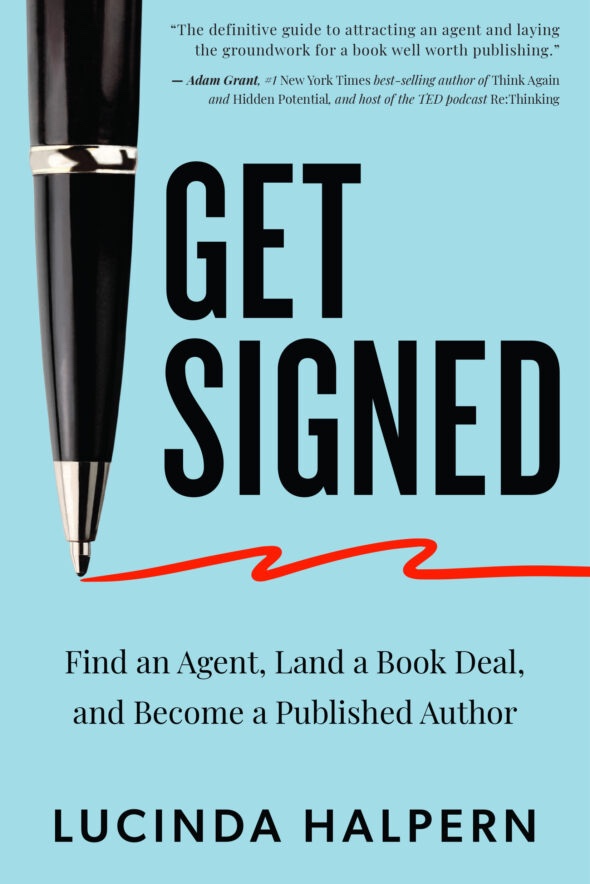Search
Why Writers Shouldn’t Quit
 Some of the writers we’ve spoken with—entering or re-entering publishing from some time ago, feeling they’ve worked absolutely tirelessly on their books but aren’t receiving positive response—are asking a vital question: is it time to let this go?
Some of the writers we’ve spoken with—entering or re-entering publishing from some time ago, feeling they’ve worked absolutely tirelessly on their books but aren’t receiving positive response—are asking a vital question: is it time to let this go?
You’ve heard from us how competitive today’s market is for new books, but if you’ve followed our blog and newsletter for some time, you also know that we don’t believe in failure in publishing (or really in anything) as traditionally defined. If you believe relentlessly in your work, you will find your audience; if you find something beautiful, someone else will, too. As the Thomas Edison quote goes: “I have not failed. I’ve just found 10,000 ways that won’t work.”
We will never tell writers in our community to give up hope. But we may encourage you to think more creatively.
Here are the scenarios we hear that you’re struggling with, and some new and different approaches you might try in response.
Scenario 1: You’ve written a novel, and your query letter has received a number of requests. But then… crickets. What can you do with this disappointing data point?
Something about your pitch is working—hooray! That’s reason alone to be proud. But your material isn’t engrossing someone’s attention, or persuading them of salability. Have you opened with your most gripping, unputdownable scene? Can you follow up to ask for specific feedback? Here’s a good, if unusual question to ask: Where did I lose you?
If you can’t get that information, you should still consider revisions, because your big idea has received a response. Get the most critical, expertly trained eye on your work, or if you’re able, hire an outside editor, and get back out there.
Scenario 2: You’ve received requests for your material, but the wait for response has seemed infinite.
Alas, alack, how discouraging! But definitely don’t be too despondent. This is more likely an issue with your pitch than your talent. Put on your marketing or agent hat and consider: have I made the case for why this book now? Have I made it clear how my book is similar but different to what’s already out there? And particularly for nonfiction writers: what will my Google visibility say about me? If there’s not much to be found online of your credentials or writing, creating a website before you query will address the questions agents need to know about who you are, what you do, and why you’re positioned to write a book.
Scenario 3: I’ve encountered countless rejections.
Again, we recommend prodding agents for more specific feedback than the boilerplate lines most will give you. And if you’ve done the revision work and are still facing rejections from anyone who had initially expressed interest, you have options. Maybe it’s time to take a breath from your book proposal and recharge, settling into a new creative project that excites you before getting out on the submission circuit again.
Or if you’re determined about this book in particular, there are a number of independent publishers that will accept unsolicited queries—agents are not your only way in. There are hybrid and self-publishing options that you may ultimately prefer for their speed to market, your creative control, and ultimately, your own profits. How many examples are there of major books by authors who have become household names that were initially passed on? (Hint: these include Dan Brown, J.K. Rowling, E.L. James, Tim Ferriss.) Choose another route, work tirelessly, and you’ll have proof of concept to share with agents and publishers down the road.
Scenario 4: You’re hearing the following feedback: “This genre is too competitive” or “your platform is too modest.”
For certain books, this feedback is entirely accurate, so try not to kill the messenger! These two critiques are related because a genre is (nearly always) competitive except when you’ve well proven your audience.
Rather than give up entirely, aspiring writers of all kinds should look to build their writing portfolios—submitting articles, short stories, or participating in competitions. Memoirists might themselves pitch, or hire someone else to pitch, their story to a notable publication or podcast. Or you may need to build that blog readership, email list, or social media presence, and understand that it could take years to prove that expertise. Are there other forums, like a blog column or a podcast, that your story would be suited to, before you try for a book? Successful authors learn from their readership, their “focus groups,” well before they figure out the book idea. Telling the story you want to tell is only seeing half the equation.
Are there useful strategies you’ve learned for how to take rejection and pivot into productivity? Our writers would love to hear!








